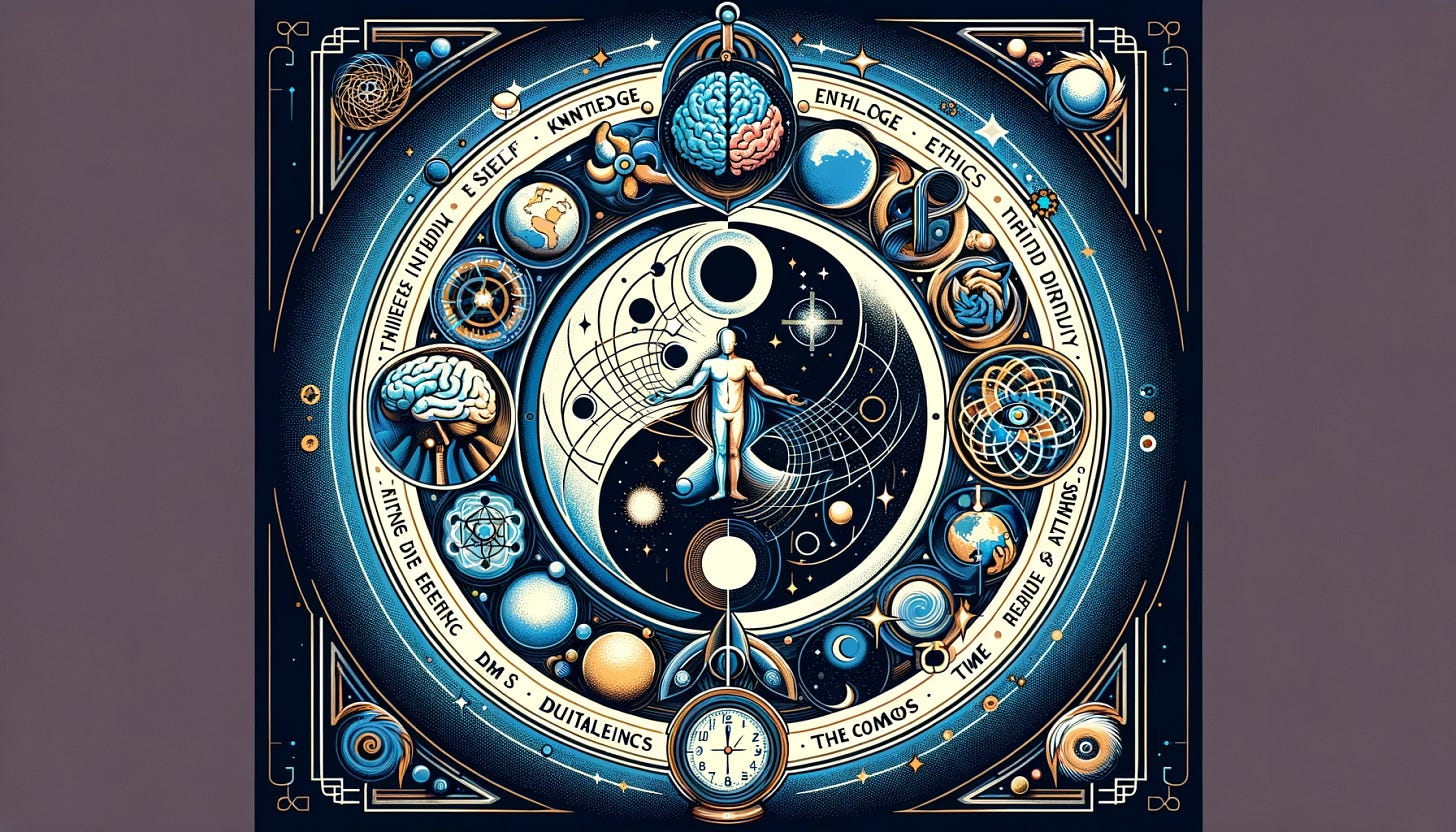Mathis Philosophical Treatises: An Exploration
Dr. Theo Mathis's philosophical treatises provide a profound and transformative framework for understanding reality, existence, and human experience through the lens of duality. These treatises challenge traditional philosophical paradigms and offer innovative perspectives that integrate the principles of the Unified Theory of Duality. Here’s an exploration of the key themes and ideas in Mathis's philosophical works:
1. The Nature of Reality
Dual Reality:
Interconnected Existence: Mathis posits that reality is composed of interdependent dual entities. Everything that exists has a complementary counterpart, and these pairs are in a constant state of dynamic interplay.
Holistic Perspective: Understanding reality requires a holistic approach that considers both the tangible and intangible, the seen and unseen. This perspective emphasizes the importance of balance and harmony in the fabric of existence.
Key Concept:
Dual Ontology: The fundamental nature of being is dual. Every entity, from the smallest particle to the vast cosmos, exists as a combination of complementary aspects. This dual ontology is the foundation of all existence.
2. The Self and Identity
Dual Self:
Physical and Metaphysical: The self is a blend of physical and metaphysical elements. The physical aspect is the body and its sensory experiences, while the metaphysical aspect encompasses consciousness, thoughts, and emotions.
Individual and Collective: Identity is formed through the interplay between individuality and the collective. Personal identity is shaped by relationships, society, and culture.
Key Concept:
Integrated Self: True understanding of the self involves recognizing and integrating its dual aspects. This integrated self is capable of navigating the complexities of life with greater awareness and balance.
3. Knowledge and Epistemology
Dual Knowledge:
Rational and Intuitive: Knowledge is acquired through both rational analysis and intuitive insight. Rationality involves logical reasoning and empirical evidence, while intuition draws from deeper, often subconscious understanding.
Objective and Subjective: Knowledge encompasses both objective facts and subjective experiences. The dual nature of knowledge allows for a more complete and nuanced understanding of the world.
Key Concept:
Epistemic Duality: The pursuit of knowledge requires balancing objective inquiry with subjective reflection. This dual approach enriches our comprehension and application of knowledge.
4. Ethics and Morality
Dual Ethics:
Principles and Context: Ethical behavior is guided by universal principles and contextual considerations. Principles provide a moral foundation, while context ensures flexibility and empathy in application.
Self and Other: Morality involves balancing self-interest with altruism. Ethical decisions should consider both personal well-being and the welfare of others.
Key Concept:
Moral Duality: Ethical living requires harmonizing principled actions with compassionate understanding. This moral duality fosters justice, fairness, and empathy in human interactions.
5. Time and Existence
Dual Temporality:
Linear and Cyclical: Time is perceived as both linear and cyclical. Linear time represents progression and growth, while cyclical time reflects natural rhythms and recurring patterns.
Past and Future: Existence is shaped by the past and directed towards the future. The present moment is a convergence of past influences and future potentials.
Key Concept:
Temporal Duality: Understanding time involves embracing its dual nature. This temporal duality enriches our experience of life, highlighting the importance of history and the promise of the future.
6. The Cosmos and the Divine
Dual Divinity:
Transcendence and Immanence: The divine is both transcendent (beyond the physical realm) and immanent (present within all aspects of the universe). This duality reflects the divine's encompassing nature.
Creation and Sustenance: The divine plays a dual role in creation and sustenance. It initiates existence and continually supports the balance and harmony of all things.
Key Concept:
Cosmic Duality: The universe and the divine are interconnected through dual principles. This cosmic duality provides a framework for understanding the profound interconnectedness of all existence.
Summary
Dr. Theo Mathis's philosophical treatises offer a transformative view of reality through the lens of duality. By exploring the dual nature of existence, the self, knowledge, ethics, time, and the cosmos, Mathis challenges traditional paradigms and provides a holistic framework for understanding and navigating life. His ideas emphasize the importance of balance, harmony, and interconnectedness, offering profound insights into the nature of being and the universe.


